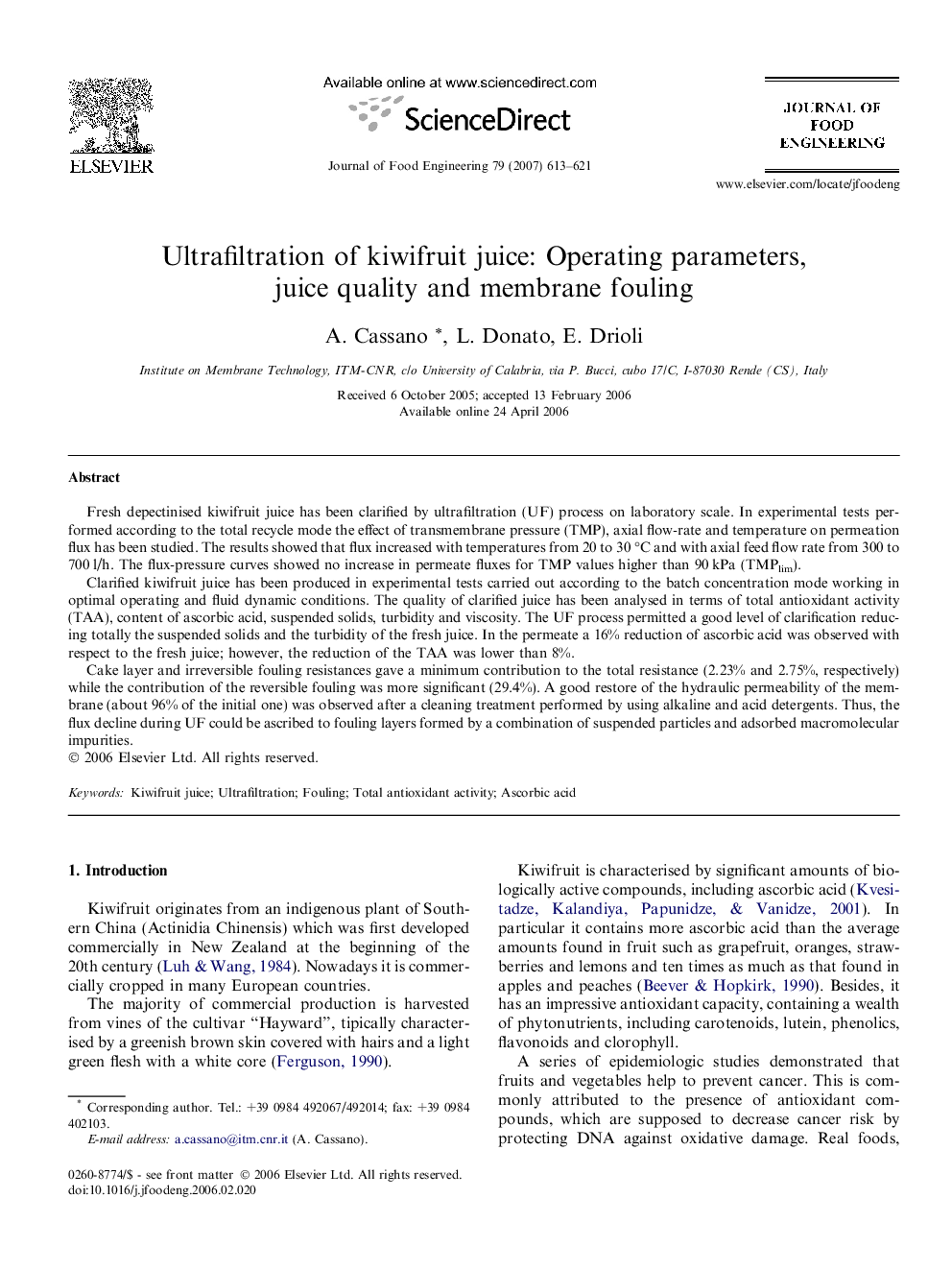| Article ID | Journal | Published Year | Pages | File Type |
|---|---|---|---|---|
| 225830 | Journal of Food Engineering | 2007 | 9 Pages |
Fresh depectinised kiwifruit juice has been clarified by ultrafiltration (UF) process on laboratory scale. In experimental tests performed according to the total recycle mode the effect of transmembrane pressure (TMP), axial flow-rate and temperature on permeation flux has been studied. The results showed that flux increased with temperatures from 20 to 30 °C and with axial feed flow rate from 300 to 700 l/h. The flux-pressure curves showed no increase in permeate fluxes for TMP values higher than 90 kPa (TMPlim).Clarified kiwifruit juice has been produced in experimental tests carried out according to the batch concentration mode working in optimal operating and fluid dynamic conditions. The quality of clarified juice has been analysed in terms of total antioxidant activity (TAA), content of ascorbic acid, suspended solids, turbidity and viscosity. The UF process permitted a good level of clarification reducing totally the suspended solids and the turbidity of the fresh juice. In the permeate a 16% reduction of ascorbic acid was observed with respect to the fresh juice; however, the reduction of the TAA was lower than 8%.Cake layer and irreversible fouling resistances gave a minimum contribution to the total resistance (2.23% and 2.75%, respectively) while the contribution of the reversible fouling was more significant (29.4%). A good restore of the hydraulic permeability of the membrane (about 96% of the initial one) was observed after a cleaning treatment performed by using alkaline and acid detergents. Thus, the flux decline during UF could be ascribed to fouling layers formed by a combination of suspended particles and adsorbed macromolecular impurities.
